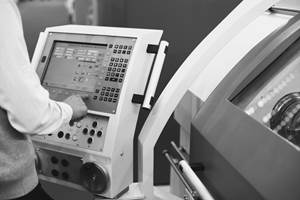There are several nationally recognized organizations that cater to the needs of manufacturing companies in the United States, including SME, The National Tooling and Manufacturing Association (NTMA) and The Precision Machined Parts Association (PMPA), among others.
Each of these groups provides services of interest to its member companies. Often their focus is providing assistance in areas that individual companies find difficult, time consuming or expensive to do on their own. The strength-in-numbers approach of a national organization will, for example, help it provide health insurance and other employee services that individual companies will find much more expensive to supply on their own.
One commonality is their focus on educational issues. Virtually all manufacturing organizations have regional and/or national conferences aimed at bringing their member companies together for the purpose of learning—from industry experts and from each other. The group will pick a hot topic, or series of topics, and address/discuss them during the conference. The overall goal, of course, is to help attendees improve their companies in related areas.
While belonging to a national organization can provide many benefits, nothing should keep you from also reaching out to the manufacturing companies in your area to bring people together to learn from one another on a smaller scale. As long as those involved are not competitors, people should be willing—if not anxious—to learn more about the different methods used by neighboring companies.
I’ve seen it happen in almost every public seminar I’ve taught. People in manufacturing yearn to find out what others in similar positions are doing. Indeed, I often think that people learn as much from each other during my sessions as they do from me. Topics I’ve overheard being discussed during breaks and lunches include machines tools, CAD/CAM systems, direct numerical control (DNC) systems, unique workholding tooling and cutting tools, and just about any other subject they have time to bring up while they are together.
I’m amazed by how little people know about the processes being used by other companies that may be located in the same city. In fact, they may barely know the products being produced or general type of work being done in a nearby company, let alone anything specific about the equipment or methods being used.
Depending upon your position in your company, initiating contact with other companies in your area may not be something you can do on your own. There may be proprietary issues to consider, in which case you must get authorization to take the first step. But, hopefully, your company management will understand the potential for growth stemming from an exchange of information and will not consider such a gathering to be threatening in any way.
Consider the valuable information that can be garnered when people from two non-
competing companies that use similar CNC machining centers get together for the first time. Work being done on the machines may be totally different from one company to the other, but there will surely be similar needs.
For example, both companies may do a lot of repeat business. Which has the best DNC system? What does each do to qualify setups? How are cutting tools inventoried and stored in each operation?
Or both companies may have long-running jobs. Which has come up with the best method for determining target values to maximize the period of unattended operation between sizing adjustments? Which company has the best methods in place for dull-tool replacement?
Both companies may run the same materials or perform the same machining operations. Which has the best tooling? Which has come up with the most efficient cutting conditions?
We’ve just scratched the surface of how an exchange of information can be beneficial to all of the non-competing companies involved in such a local consortium. The list of similar needs between just about any two companies will be substantial, and surely each can learn a few things from the other. Consider the potential for learning and improvement if you could get together a group from 10 non-competing companies to share their ideas and methods. Each could come away with some valuable information.






.jpg;width=70;height=70;mode=crop)






























